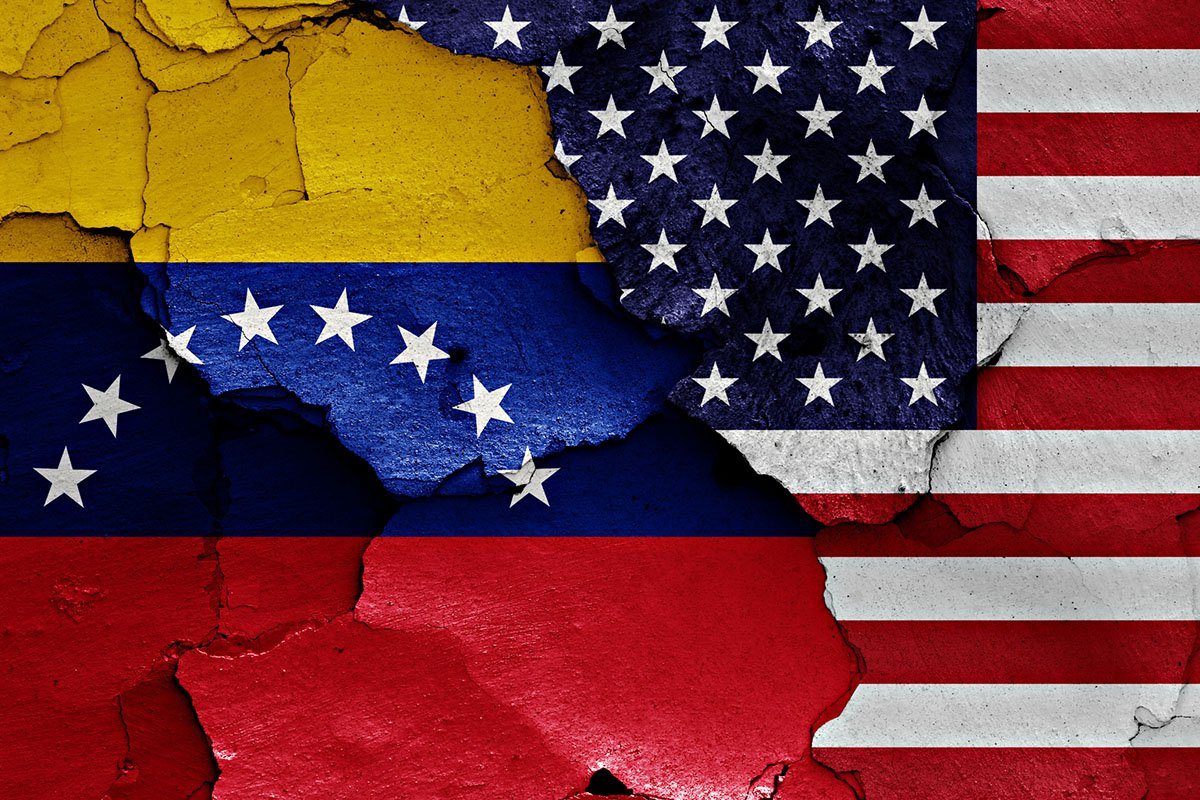
Over the past decade or so, new tactics of resistance and modes of communication have arisen to take their place alongside older, more tested tactics to enhance civil society’s ability to respond immediately and powerfully to government when it diverges from public values. This past weekend, many of these were deployed from multiple hubs of activity.
All across the country yesterday, tens of thousands protested Trump’s Friday executive order barring citizens of seven Muslim-majority countries from entering the United States. In D.C., Boston, New York, Washington, and many other cities, outraged citizens chanted. Protests targeted major airports from Los Angeles to Chicago to New York. Other demonstrations were kicking off in town squares and smaller airports, from Bangor to Boise to Bloomington, Indiana. These actions were, from all outside appearances, relatively spontaneous and non-violent.
The order denies entry of all refugees to the U.S. for three months, blocks refugees from Syria indefinitely, and bars all entry for three months from predominantly Muslim countries: Iraq, Syria, Iran, Sudan, Libya, Somalia, and Yemen. By Saturday, some travelers were already being detained as they tried to enter the country; this drew thousands to airports in L.A., Chicago, O’Hare International Airport and New York’s JFK.
In Dallas, Mayor Mike Rawlings met with the detainees at the Dallas-Fort Worth International Airport, saying to reporters, “The tide is turning and the sun is rising—and these important visitors to our city are here. We have wished them welcome and we have apologized from the depths of our heart.” In L.A., city attorney Mike Feuer declared, after he had been prevented from seeing the detainees there or even being told how many there were, “It is time not only for officials in my position, but all Americans, should find this a breathtaking violation of rights.”
Seventeen attorneys general issued a joint statement, reading,
As the chief legal officers for over 130 million Americans and foreign residents of our states, we condemn President Trump’s unconstitutional, un-American and unlawful Executive Order and will work together to ensure the federal government obeys the Constitution, respects our history as a nation of immigrants, and does not unlawfully target anyone because of their national origin or faith.
Religious liberty has been, and always will be, a bedrock principle of our country and no president can change that truth.
Yesterday, multiple federal courts ordered a stay of the Administration’s dangerous Executive Order. We applaud those decisions and will use all of the tools of our offices to fight this unconstitutional order and preserve our nation’s national security and core values.
We are confident that the Executive Order will ultimately be struck down by the courts. In the meantime, we are committed to working to ensure that as few people as possible suffer from the chaotic situation that it has created.
Lawyers offering free services to any detainees descended on JFK airport in New York City by Saturday evening, but were not allowed direct contact. In Brooklyn, Federal Judge Ann Donnelly granted an emergency stay for those who have already arrived in the U.S. or who are in transit and hold valid visas. Judges in Massachusetts and Virginia also ordered halts.
However, a statement from the Department of Homeland Security says the court rulings will have little impact:
President Trump’s Executive Orders remain in place—prohibited travel will remain prohibited, and the U.S. government retains its right to revoke visas at any time if required for national security or public safety. […] No foreign national in a foreign land, without ties to the United States, has any unfettered right to demand entry into the United States.
In the ranks of the GOP, Republican senators John McCain of Arizona and Lindsey Graham of South Carolina issued a scathing condemnation of the act. “We fear this executive order will become a self-inflicted wound in the fight against terrorism,” they wrote, adding that Trump’s executive order “may do more to help terrorist recruitment than improve our security.”
Trump responded to their criticism by tweeting: “The joint statement of former presidential candidates John McCain & Lindsey Graham is wrong—they are sadly weak on immigration. The two…Senators should focus their energies on ISIS, illegal immigration and border security instead of always looking to start World War III.”
Silicon Valley finally started to wake up from its unattractive apolitical nap, which included taking tea with Trump. As the New York Times described it, “Two worldviews collided: the mantra of globalization that underpins the advance of technology and the nationalistic agenda of the new administration.”
Sign up for our free newsletters
Subscribe to NPQ's newsletters to have our top stories delivered directly to your inbox.
By signing up, you agree to our privacy policy and terms of use, and to receive messages from NPQ and our partners.
In response, a significant part of the tech community went to the barricades.
Netflix’s chief executive, Reed Hastings, wrote on Facebook that Mr. Trump’s actions “are so un-American it pains us all” and that “it is time to link arms together to protect American values of freedom and opportunity.”
Brian Chesky, the chief executive of Airbnb, made the same point. “We must stand with those who are affected,” he wrote on Twitter.
Meanwhile, Uber was introduced to the power of stakeholder governance after tweeting that it was available and would suspend its surge pricing after NYC taxi drivers joined the protest at JFK. As CNBC reports:
On Saturday, The New York City Taxi Workers Alliance called for a temporary halt to rides heading to John F. Kennedy airport. Several immigrant detainees were being held at a terminal there before being released when a judge intervened to block parts of Trump’s executive order. The alliance, which is not a union but a cab driver advocacy group, sought to rally drivers in support.
Earlier Saturday, Uber co-founder Travis Kalanick had barely nodded to the issue, declaring in a letter that Uber would compensate the dozen or so drivers from the seven countries who might not be able to return to the U.S. for three months or more. But then he indicated the extent to which it was all just business as almost usual. “This ban will impact many innocent people—an issue that I will raise this coming Friday when I go to Washington for President Trump’s first business advisory group meeting.”
A #DeleteUber campaign was soon underway. Uber eventually apologized and offered $3 million to the ACLU. Good choice. Meanwhile, Lyft sent an email to its subscribers saying that the company would be donating $1 million over the next four years to the American Civil Liberties Union to help address the legal issues of detainees.
Sam Altman, who runs Y Combinator, thinks there has been a wakeup call. “After the election, a lot of people here said give Trump a chance in good faith, and after he started, a lot of people said give him a chance in good faith. Now they are looking at his policies and saying he is a risk to the republic. Saturday was a good beginning, and I think there is more to come.” Aaron Levie of the data storage company Box wrote, “On every level—moral, humanitarian, economic, logical, etc.—this ban is wrong and is completely antithetical to the principles of America.” Further, as Mr. Levie said, “almost every company’s products—Google, Apple, Airbnb—has a global customer base. These policy decisions have real implications to our partners, our customers, our competitors. That’s why we’re seeing this reaction.”
This order violates our collective identity and integrity to a significant degree. Richard W. Painter and Norman L. Eisenjan, in an editorial to the New York Times, point out that the countries subject to the ban are relatively poor and, coincidentally, all places where Trump does no business:
Overlooked in the furor is another troubling aspect of the situation: President Trump omitted from his ban a number of other predominantly Muslim nations where his company has done business. This adds further illegitimacy to one of the most arbitrary executive actions in our recent history, and raises significant constitutional questions.
[…]
And now, only a week into President Trump’s term, we see the devastating consequences of this conflict of interest. It appears that immigrants from countries that can afford to do business with the Trump organization are free to come and go from the United States. Immigrants from countries that cannot afford such transactions may very well be detained at the airport and sent home, where some may perish.
What’s interesting about what occurred this past weekend is that it included an impressive array of civil action, including:
- Protest actions, many at transportation hubs—the airports. Readers will recall that transportation systems have often been used as locations for protest, most recently particularly by the Black Lives Matter movement. Not only are they disruptive, but in this case, it’s also where the detainees were being held.
- Immediate response from attorneys and legal organizations, some of which were inundated with donations, to file successful suits that blocked some aspects of the order and provide legal counsel to detainees and their families.
- Use of the press to put forward arguments that clarify issues for the public.
- Public responses by a range of Republican and Democratic lawmakers that referenced both the self-interest and the self-image of this country.
- Reactions on the part of a corporate community whose customer base and basic ethos is global.
- Online boycott-type reactions from consumers when part of that corporate community attempted to maintain a foot in both camps.
We’re sure there were a number of other actions that have gone unmentioned here, but in this past weekend’s array, we see a bringing forward of all that the civil sector has put to use over the past five years in a way that is nothing short of impressive.












